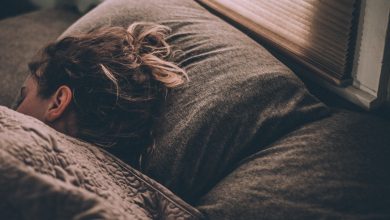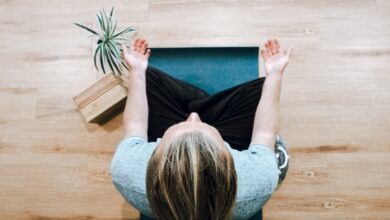
Previously, many researchers recommended that people avoid napping during the day. Scientific advances in recent decades have led researchers to obtain more complete information on the impact of sleep habits and health on mental and physical functions. Today, from a scientific point of view, the advantages of napping during the day have been identified. Stay with us to learn about some of the benefits of daily naps.
Regarding daily naps, note that sleeping during the day should not compensate for the lack of sleep at night. This replacement can threaten people’s health. Aside from this, having a short nap (ideally 20 minutes and maximum 30 minutes) with a gap of 7 to 8 hours before sleeping at night can bring many benefits; Improve brain function, relieve stress, and many other benefits.
On the other hand, as researchers did not recommend napping during the day until the benefits were scientifically proven, many people considered this an unpleasant habit. Also, people who had achieved great success denied the benefits of this nap, and its effect on increasing productivity and providing energy was not believable to them. In addition, economic and cultural issues affect people’s habits, and perhaps a desirable and correct habit is abandoned due to conflict with these issues. Of course, the opposite point of this case is also true, and society’s culture and beliefs can create helpful habits.
But the results obtained from modern scientific research teach us that when we nap, our brain and body recover their lost energy, and no other factor can be as influential as resting in restoration and recovery.
In the following, we state eight advantages proven by scientific research for napping during the day. If you don’t have a favorable opinion about napping, reading this article can help you change your opinion and find a scientific and correct point of view about this issue.
It compensates for the lack of energy during the day.
Our brain naturally increases the release of melatonin hormone in the first half of the afternoon. This natural process is the reason for daytime sleepiness, which we usually don’t know about. Our sleep-wake cycle has a natural pattern that helps us better understand the results of scientific research. According to this pattern, it is natural that researchers consider the early afternoon hours to be the best time to take a nap during the day. Following this scientific advice will bring more benefits to napping during the day.
Instead of continuing your activity with minimal energy, an energy nap in the early afternoon can help you reset your body clock and restore your lost energy. An afternoon nap is a short-term investment that pays off when you return for the rest of the day.
Improves problem-solving skills.
Studies have shown that people who nap daily perform better in solving problems. Napping helps these people separate essential information from extraneous details.
In other words, napping enhances analytical skills, executive functions, creative thinking, and innovation. As a result, napping helps us be more adaptable and flexible in mental processes and show more initiative. Also, napping increases mental resilience.
It strengthens brain function.
A common habit among people to feel more alert and mentally focused is to use caffeine. People especially drink caffeinated beverages such as tea or coffee to combat daytime sleepiness.
You might be surprised, but taking a nap is far more beneficial and efficacious than consuming many caffeinated beverages. Unlike caffeine, naps have been proven to enhance some memory consolidation processes and increase alertness and concentration. While napping improves brain function, caffeine consumption sometimes leads to brain dysfunction.
Increases productivity.
When the brain is tired, it is easily distracted, and the distracted person is forced to work harder to achieve the most minor results. Studies have shown that distraction can reduce productivity by 20%. Maybe you have experienced; With a lack of sleep; you start your day and struggle to complete your tasks. In this situation, you have touched this reduced productivity caused by distraction.
Research has shown that you can deal with decreased alertness and efficiency caused by a lack of night sleep by napping during the day.
An important point: don’t forget that napping during the day is not the solution if you can’t sleep enough at night. Maybe an underlying sleep disorder is the cause of your problem that you need to treat. Continuing these conditions will not help improve your sleep.

Removes negative thoughts.
Getting caught up in negative thoughts is easy when you plan to take a mid-day nap, especially if those around you view resting and napping as laziness. Engaging in to-dos and habits that make you blame yourself hurts your abilities and wastes your energy. You need to store your energy so that the natural processes related to your body’s biological clock continue without the slightest disturbance rather than simply wasting it.
One of the essential principles in achieving personal and social success is the ability to overcome negative thoughts. You need physical, mental, and psychological rest, and this issue has a significant impact on your performance. Consider your needs and try to manage the situation best to meet them.
It helps to improve health.
As mentioned earlier, a short nap during the day helps regulate the body’s biological clock.
By adjusting the biological clock of the body, we do not experience a lack of energy, and as a result, we do not need to consume harmful substances such as caffeine and simple carbohydrates to increase power. Consuming these substances can completely disrupt our sleep and wake cycle. Caffeine, especially if consumed late in the day, negatively affects the sleep-wake cycle most. Caffeine inhibits adenosine receptors and disrupts the body’s biological clock. Lack of sleep can be a severe threat to health. Anxiety, dementia, and stroke result from not having enough comfortable sleep.
On the other hand, consuming caffeinated beverages and foods containing simple carbohydrates, in addition to causing excess weight, increases the risk of cardiovascular diseases, diabetes, colds, and depression. Naps during the day are a healthy alternative to caffeine and simple carbohydrates. We help our health with a short nap.
Eliminates stress.
Every time we step away from today’s stressful and busy world, we open a way to increase inner peace and reduce stress. Taking a nap is one of the most obvious ways to escape the world and its busyness for a short while and rest a little. This short sleep helps the brain to process and organize information, the information that we constantly enter into the brain during the day, and due to busyness, we do not give the brain a chance to organize them.
It’s interesting to know that you don’t have to fall asleep in order to enjoy the benefits of napping during the day. When you close your eyes and relax, it takes the pressure off your brain. More than 50% of the brain’s capacity is spent on visual data processing. Closing your eyes during a nap allows your brain to recover and rest.
It increases the power of learning.
Learning in our life is not only limited to school days. We are learning every day. Our personal growth, success, and even happiness are influenced by what we know throughout our lives. One of the stages of learning is the consolidation of new data in long-term memory. What good is learning if we can’t access this data later?
Numerous studies have shown that short naps during the day help your brain better consolidate new data into long-term memory. As a result, your learning power increases.
What was the previous stance of researchers on napping during the day?
Previously, many researchers recommended that people avoid napping during the day.
How has scientific research changed the perception of daytime napping?
Scientific advances in recent decades have led researchers to obtain more complete information on the impact of sleep habits and health on mental and physical functions. Today, the advantages of napping during the day have been identified from a scientific point of view.
What is the ideal duration for a daytime nap?
The ideal duration for a daytime nap is around 20 minutes, and it should not exceed 30 minutes.
How does napping during the day affect brain function?
Napping during the day can improve brain function, relieve stress, and provide many other benefits. It helps the brain and body recover their lost energy.
What is the best time to take a nap during the day?
The best time to take a nap during the day is in the early afternoon hours. This is when our brain naturally increases the release of the melatonin hormone, which causes daytime sleepiness.
How does napping affect problem-solving skills?
Studies have shown that people who nap daily perform better in solving problems. Napping helps these people separate essential information from extraneous details, enhancing analytical skills, executive functions, creative thinking, and innovation.
How does napping compare to caffeine consumption in terms of alertness and focus?
Taking a nap is far more beneficial and efficacious than consuming many caffeinated beverages. Unlike caffeine, naps have been proven to enhance some memory consolidation processes and increase alertness and concentration.
How does napping during the day affect productivity?
Napping during the day can help deal with decreased alertness and efficiency caused by a lack of night sleep, thereby increasing productivity.
How does napping during the day affect health?
A short nap during the day helps regulate the body’s biological clock, reducing the need to consume harmful substances such as caffeine and simple carbohydrates to increase energy. It’s a healthy alternative that can help prevent health issues like anxiety, dementia, stroke, cardiovascular diseases, diabetes, colds, and depression.
How does napping during the day affect stress levels?
Taking a nap is one of the most obvious ways to escape the world and its busyness for a short while and rest a little. This short sleep helps the brain to process and organize information, reducing stress.
How does napping during the day affect learning?
Numerous studies have shown that short naps during the day help your brain better consolidate new data into long-term memory, thereby increasing your learning power.







